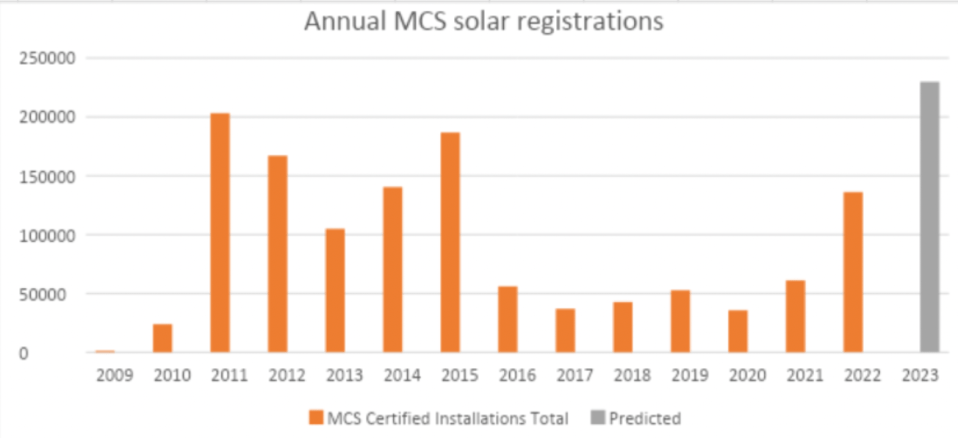HIP CAPITALI$M
Cannabis price 'race to the bottom' hurts market's future: OCS CEO
, The Canadian Press
The head of Ontario's cannabis distributor says the "race to the bottom" happening with pot prices risks hurting the market's future.
“Once you condition consumers to certain prices, it may take a generation to change perceptions and price tolerances,” David Lobo, Ontario Cannabis Store president and chief executive, said in a speech at the Lift cannabis conference in Toronto on Thursday.
“In an economy where inflation has impacted every other consumer good, we can't keep pushing lower.”
His remarks come as the cannabis boom that materialized in 2018, when the substance was regulated and money poured into the sector, has since dissipated. Pot companies are taking multimillion-dollar writedowns, laying off staff and rethinking their product mixes as the industry gets a better sense of consumer demand and regulatory hurdles.
All the while, the illicit market, where weed is much cheaper and sellers operate outside restrictions imposed on the legal market, has remained mighty. The OCS estimated in Ontario alone, the illicit market still made up 43 per cent of the province’s cannabis market last March, down from June 2020, when it held onto 75 per cent.
Many believe the illicit market has a far greater share of pot sales than governments and their pot distributors capture in such statistics because there is still a stigma around cannabis, so users may not admit weed use when surveyed.
To stay competitive, cannabis producers have been dropping prices. Statistics Canada said a gram of legal cannabis cost $10.29 on average in 2019, whereas the OCS had some dried flower products selling for under $4 this week.
The price compression has meant prices can also be much lower in Canada than in the U.S., said David Schewede, chief executive of Heritage Cannabis, which is behind the Rad and Purefarma brands.
"In Missouri, we sell the same (product) for $70 U.S. that we sell here for $31 Canadian," he said, in a session after Lobo's speech.
"It's the same product, same terpene, same supplier, same manufacturer, same secondary package and label supplier. There's a lot more money being made down there."
However, Schewede cautioned that lower prices don't always amount to more sales. His company has released products "that were so cheap that I don't even know if we were making money," but they wound up being an "absolute stinker" because shoppers were looking for more than a low price.
Lobo maintains the OCS is doing its part in fighting the race to the bottom with a plan to lower its margins this fall, which he estimates could hand $60 million to licensed pot producers next year.
However, the OCS, which distributes cannabis from producers to stores, will not require pot companies to pass along savings from the margin to drop to consumers by lowering their prices.
Canopy Growth Corp., one of Canada's largest pot producers, has said it will hold its prices.
The Smiths Falls, Ont. cannabis company behind the Tweed, Ace Valley and 7Acres brands is not budging on its pricing because the pot market is already “highly competitive," chief executive David Klein told The Canadian Press in February.
Lobo also used his speech to remind the industry that conditions have shifted since legalization, when investors were highly optimistic about the industry and a sales rush was expected.
"We are no longer in the early days of legalization anymore. That dank new car smell of legal cannabis has worn off," he said.
"The attention of the country has shifted to other topics like COVID, geopolitical tensions, inflation and now emerging platform shifts like green technologies and artificial intelligence."
Despite cannabis being a substance with a lengthy history and being almost five years past legalization, Lobo feels the industry still doesn't know how it would fare in some crisis times.
"We don't yet know how fragile consumer trust and social license with Canadians truly is," he said.
"What happens if we have a major recall resulting from adverse product reactions, negatively impacting the health of many Canadians?"
The integrity of the industry could be impacted by a "lapse in judgment" from a few people, he warned.
"How large of an impact can a few unfortunate events have on the moral high ground we have in positioning legal cannabis as a better alternative to illegal?
"The types of events I'm speaking of are not something I believe anyone in this industry wants to see occur and they are difficult to forecast ... but the marketplace needs to be watched carefully."
This report by The Canadian Press was first published June 1, 2023.









